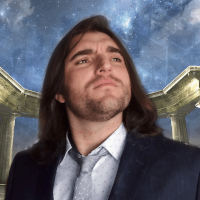Worldbuilding, RPG campaign manager, storytelling. All in one.
Kanka is a community driven world building website. Are you making your own D&D homebrew campaign or using other TTRPG systems? We help you manage, organize, and keep track of your ideas, your creations, and your world.
Make full use of our @mentions system and all our other features to bring your world to life. This includes calendars, interactive maps, timelines, organizations, and families. You can also create as many characters as you want! We even have custom modules so you can do things your way.
"Kanka has genuinely brought my games to the next level and has made me a better DM."

A better way to keep track of your worldbuilding and RPG campaigns
As passionate DMs ourselves, we believe this is the only world building tool you’ll need to stay organized. No more losing track of scattered notes. In Kanka, everything is in one place, easy to find and accessible on the go.
Just as importantly, we believe in the power of community. All our users can suggest new features for the roadmap. Our subscribers can then vote on what they want to see implemented!

Free core features
We want you to put Kanka through its paces when trying it out. Our free tier isn't just a trial, it includes all our core features and unlimited elements. Everything you need to start worldbuilding.
Collaborative
Collaborate with your friends by inviting them to your campaign. You can easily keep track of what they can see and contribute to with our extensive permissions system.
Customizable
Customize every last detail of the world you are building. Rename built-in modules, write your own CSS, or install plugins created by the team and other users. Everything you need to make it yours.
Modular
We have focused on creating about 20 different modules in Kanka. Every module targets an aspect of TTRPG gameplay or overall worldbuilding. We also have custom modules for more granular control.
"As a DM, Kanka makes it so easy to organize a campaign and look up information quickly in a session."
Pricing
Kobold
Free

Popular
Owlbear
$4.99/month

Best value
Wyvern
$9.99/month

Elemental
$24.99/month

"I am obsessed with creating stories and Kanka is perfect to help keep track of everything."
Featured campaigns
Our community builds amazing things that we love to showcase as Featured Campaigns. These are great examples of worldbuilding that we recommend you check out. They can also showcase what other users have done with Kanka, and give you some inspiration!
"It's easy and straightforward to use, and is the best way to keep track of the details of my campaign. I love the ability to link entities to each other"



